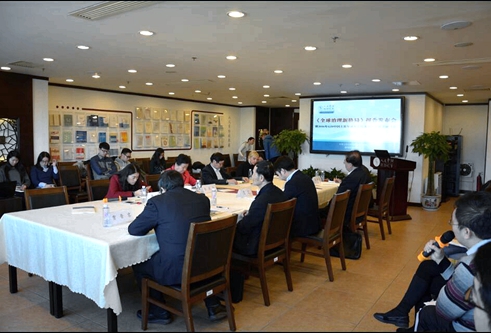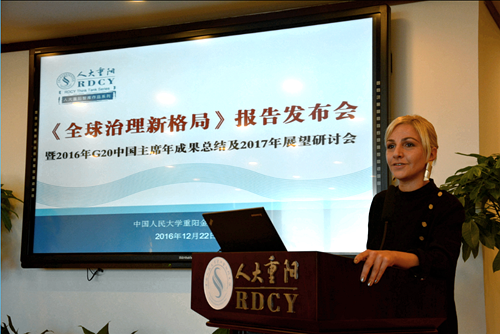Global Governance
Your Present Location: PROGRAMS> Global GovernanceG20 should enhance global governance amid uncertainty
Source: CCTV.com Published: 2016-12-23
2016 is branded as “a year of uncertainty” by some international observers. A long list of “unexpected incidents” serve as proof:
Brexit in May led to the resignation of the United Kingdom’s former prime minister David Cameron, and his Italian counterpart Matteo Renzi, also resigned after losing a referendum on constitutional reform in December.
In East Asia, South Korean President Park Geun-hye faces political turmoil after the disclosure of her longtime confidante, Choi Soon-sil, was indicted on multiple charges including abuse of power and extortion.
In the Middle East, the “mini-world war” in Syria has caused millions of deaths and forced more than 10 million people to flee in whatever destinations they can reach.
In the United States, Donald Trump’s “surprising” victory over Hillary Clinton is seen as another “black swan” of 2016. Trump is still “loved” by some, but “hated” by others in the US. Time magazine called him: President of the “Divided States of America.” As US President-elect, his influence reaches out to every corner of the globe. And the world is watching, some with anxiety.
Chinese Foreign Minister Wang Yi called China the “stabilizer” during chaotic times in a recent interview with the People’s Daily, summarizing Beijing’s diplomacy in 2016. He holds the confidence to say so.
China has made great contributions to the world, not only as a driving force for the world economy, but as a major player to promote peace and development in the international community.
Beijing had accomplished fruitful achievements in its all-around diplomacy in 2016, highlighted by the G20 Hangzhou Summit held last September. Accordingly, we can capture a glimpse of what China has contributed and can continue to deliver to the world.
As host nation, China inscribed its wisdom into the G20, one of the important global governance mechanisms. A report released Thursday (Dec. 22) here in Beijing, China’s G20 Year and the New Paradigm, by Feride Inan, a visiting scholar of Chongyang Institute for Financial Studies, Renmin University of China (RDCY), cited contributions of China and other participants in this year’s Hangzhou summit.

A report on "China’s G20 Year and the New Paradigm" released in RDCY.
The report highlights at least 20 important achievements, covering from addressing emerging risks to enhancing global governance, from introducing the G20 Initiative on supporting industrialization in Africa and least developed countries to adopting the G20 Action Plan on the 2030 Agenda for Sustainable Development to provide impetus for G20 countries in implementing the United Nations agenda.
As the largest developing nation, China has benefited from globalization and various forms of trade agreements with other nations. Owing largely to its opening up and reform policy, China has evolved into the world’s second-largest economy today.
Amid rising protectionism and anti-globalism sentiments, Beijing remains a strong advocate for global trade and investment. Inan pointed out that the G20 Hangzhou summit adopted the first ever G20 Strategy for Global Trade Growth. The Strategy aims to bring in developing countries and SMEs (Smalll and Medium-sized enterprises) into the global economy and address a global slowdown of trade and investment growth.

RDCY`s visiting scholar Feride Inan introduced the report.
The G20 also adopted a “G20 Guideline for Global Investment Policy,” which is the first framework for multilateral global investment rules. The common strategy was the creation of a predictable investment environment.
2016 is drawing to a close. Nobody can be sure whether there will be less uncertainty in 2017. No matter how the trend goes, China will continue to play a responsive role according to its capabilities. And hope all parties play their according roles well, too.
Key Words: RDCY; G20; report; Feride Inan























































































 京公网安备 11010802037854号
京公网安备 11010802037854号





